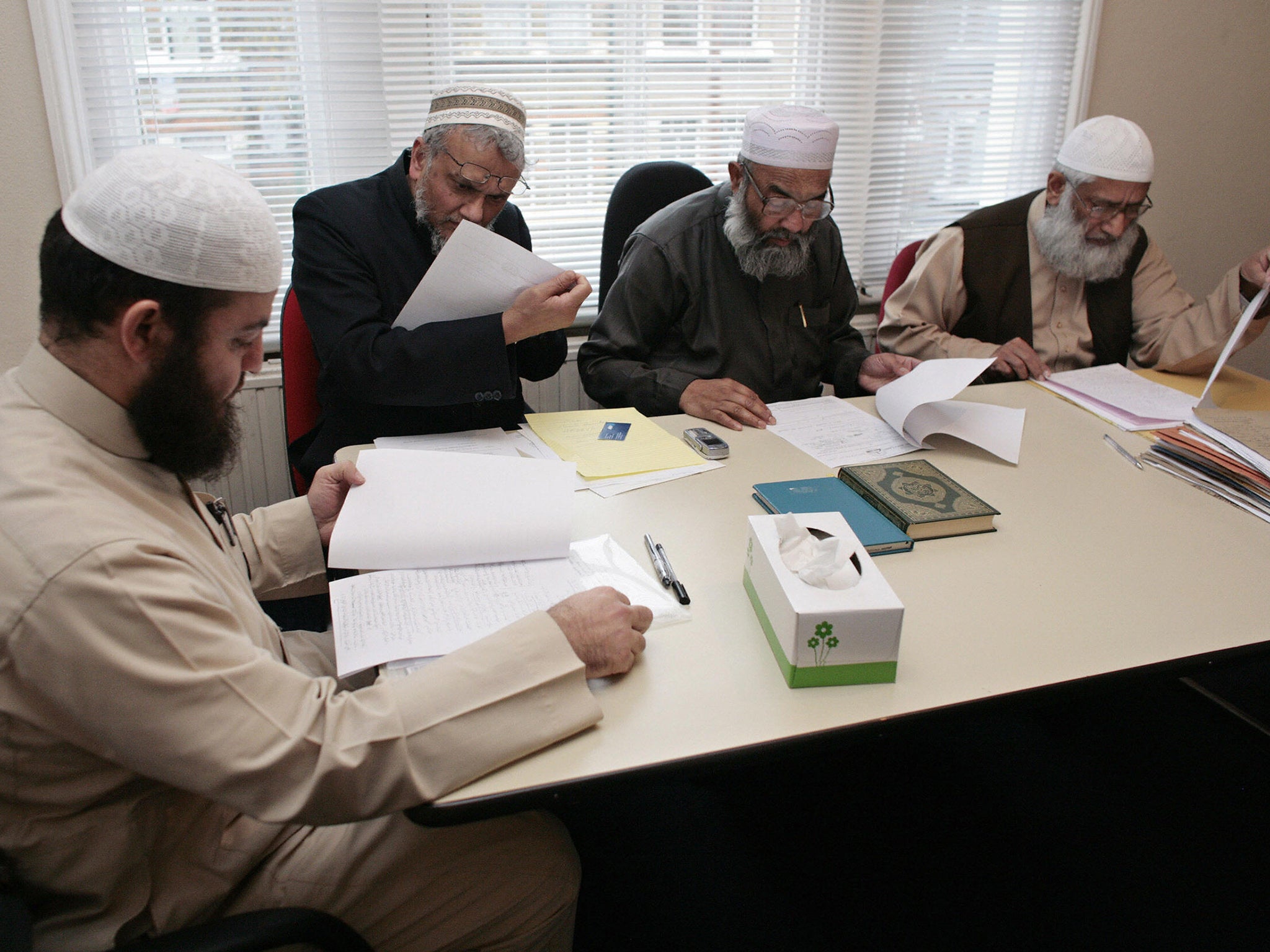Sharia courts in UK face Government inquiry over treatment of women
Home Office to examine claims sharia courts – or councils – may be working in a ‘discriminatory and unacceptable way’

Your support helps us to tell the story
From reproductive rights to climate change to Big Tech, The Independent is on the ground when the story is developing. Whether it's investigating the financials of Elon Musk's pro-Trump PAC or producing our latest documentary, 'The A Word', which shines a light on the American women fighting for reproductive rights, we know how important it is to parse out the facts from the messaging.
At such a critical moment in US history, we need reporters on the ground. Your donation allows us to keep sending journalists to speak to both sides of the story.
The Independent is trusted by Americans across the entire political spectrum. And unlike many other quality news outlets, we choose not to lock Americans out of our reporting and analysis with paywalls. We believe quality journalism should be available to everyone, paid for by those who can afford it.
Your support makes all the difference.The Government is to launch an investigation into whether sharia courts operating in the UK discriminate against women – legitimising forced marriages and issuing unfair divorce settlements.
The Home Office said it would examine claims that sharia courts – or councils - may be working in a “discriminatory and unacceptable way”, seeking to legitimise forced marriage and issuing divorces that are unfair to women, contrary to the teachings of Islam. However, it will also seek out examples of best practice among sharia councils.
The Home Office inquiry, which is part of the Government’s counter-extremism strategy, will be led by Professor Mona Siddiqui, an expert in Islamic studies, and include family law barrister Sam Momtaz, retired high court judge Sir Mark Hedley and specialist family lawyer Anne Marie Hutchinson.
An estimated 30 sharia councils exist in the UK, giving Islamic divorce certificates and advice on other aspects of religious law. They have garnered fierce criticism, particularly for their treatment of women seeking religious divorces, who make up the core clientele.
Sharia is the Islamic legal system, derived from the Koran and the rulings of Islamic scholars, known as fatwas. As well as providing a code for living – including prayers, fasting and donations to the poor – sharia in some countries such as Saudi Arabia also lays down punishments as extreme as cutting off a hand or death by stoning for adultery.
Two religious and theological experts – Imam Sayed Ali Abbas Razawi and Imam Qari Asim – will advise the Government panel on detailed religious and theological issues. It is due to report next year.
Professor Siddiqui, said the review would be wide-ranging.
“It’s a privilege to be asked to chair such an important piece of work,” she said.
“At a time when there is so much focus on Muslims in the UK, this will be a wide ranging, timely and thorough review as to what actually happens in Sharia councils.”
The Home Secretary, Theresa May, said that many British people followed religious codes and practices, and benefit a great deal from the guidance they offer, but there was the potential for abuse of such systems.
“A number of women have reportedly been victims of what appear to be discriminatory decisions taken by sharia councils, and that is a significant concern,” she said.
“There is only one rule of law in our country, which provides rights and security for every citizen.
“This review will help us better understand whether, and the extent to which, sharia is being misused or exploited, and make recommendations to the Government on how to address this.”
Join our commenting forum
Join thought-provoking conversations, follow other Independent readers and see their replies
Comments